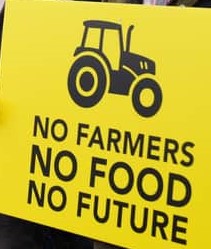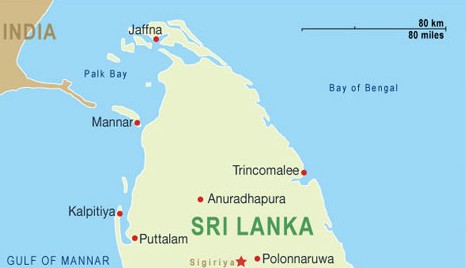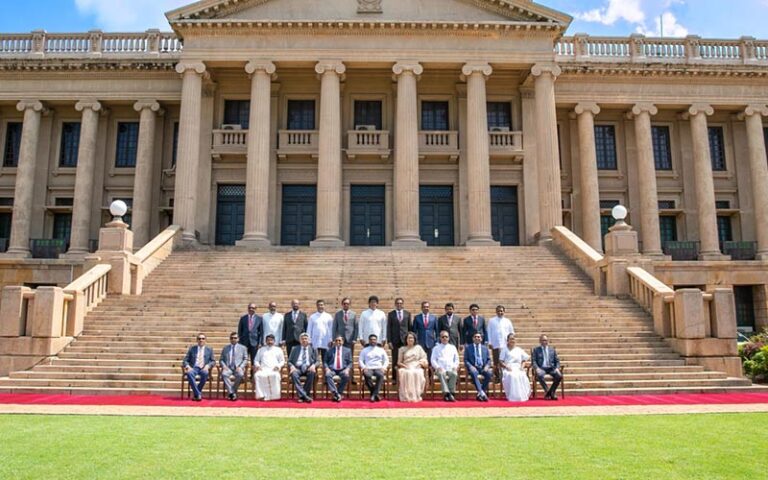[ by Shenali Waduge ]
 “Oh! Great King, the birds of the air and the beasts have an equal right to live and move about in any part of this land as thou. The land belongs to the peoples and all other beings and thou art only the guardian of it.”
“Oh! Great King, the birds of the air and the beasts have an equal right to live and move about in any part of this land as thou. The land belongs to the peoples and all other beings and thou art only the guardian of it.”
This call based on fundamental Buddhist tenets of love and compassion for all living beings, was made by Arahant Mahinda to King Devanampiyatissa in their very first encounter over 2300 years ago, and effectively put a stop to the deer hunt of the King at the base of the Mihintale Rock.
It had a dramatic impact and together with other Buddhist moral injunctions helped formulate the ethical foundations of public policy and governance strenuously followed by all Sinhala Buddhist kings who ruled Sri Lanka.
Buddhist Influence
Buddhist influence helped create a benevolent state in Sri Lanka that accepted state responsibility for the welfare of both man and animal.
The Buddha’s discourse in the Cakkavatti – Sihanada Sutta (Digha Nikaya of the Sutta Pitaka) where the Buddha spelt out the duties of an ideal ruler and declared:
“The Cakkavatti King (Righteous King) will give protection, shelter and ward both to the different classes of human beings, and also to birds and beasts”,
had resonance throughout our history for over a period of 2000 years from the time of King Devanampiyatissa to the last king of the Kingdom of Kandy, which was ceded to the British in 1815.
The social and legal history of Sri Lanka provides innumerable examples of the Buddhist attitude to animal life. Our former Kings established some of the worlds’ first wild life sanctuaries. Five of the kings governed the country under the ‘Maghata’ rule, which banned completely the killing of any animal in the kingdom.
King Silakala (524 – 537 AD) decreed the ‘preservation of life for all creatures’ throughout the Island[1]. King Kassappa IV (898 -914 AD) granted safety to all creatures on land and water and in doing so observed in all respects the conduct of the ancient kings.[2] Virtuous Kings moved by compassion for animals distributed ‘young corn full of milky juice’ to cattle, and rice to the crows and other birds.[3] King Mahinda IV made arrangements for the distribution of rice cakes to apes, wild boar, gazelle and dogs.[4] King Parakramabahu I had commanded that safety of life be extended to all creatures without exception living on dry land and in the water on the four uposatha days in every month.[5]
Several Kings established Animal Hospitals and one King, namely Buddhadasa (341 AD) became a reputed medical and veterinary surgeon.
The people, influenced by the principle of ‘Ahimsa’ generally kept away from occupations that required the killing of animals to earn a living- e.g. hunting, fishing and the slaughter of animals for food. Those who resorted to these activities were usually relegated to the margins of the society and treated as outcastes.
Today, we do not have Kings or Monarchs any more but it is largely the votes of the Sinhala Buddhists (70% of Sri Lanka’s population) that bring Governments to power or over throw them at elections.
However current rulers must take the cue and observe in all respects the conduct of the ancient kings, who were in the main virtuous Kings moved by compassion for animals.
Buddhist First Precept
“Abstain from taking life” is the first precept of Buddhism “Panatipata veramani sikkhapadam samadiyami”. Pana refers to any living being that has breath or consciousness which includes people and all animal life. Atipata means “striking down” referring to killing, injuring or torturing.
The violation of the first precept involves 5 factors – the living being, the knowledge of the living being, the volition thought of killing, the killing itself and the death of the living being. In the context of the current scenario what needs to be understood is that the violation of the precept arises in the mind with the recognition of a living being and the willful thought of killing that being. A killing that is premeditated is a graver offense than an impulsive killing.
Decision to close water holes around Mattala Airport
Let us place this in context of the decision to close the water holes at Mattala by the civil aviation authorities on the grounds that the birds and other wildlife species pose a threat to aircrafts.
The decision to have a second international airport in Sri Lanka is a worthy one but the feasibility tests that would have been conducted should have covered the facts that
§ The proposed International Airport was to be in the heart of an already existing bird sanctuary.
§ That birds and animals were already living in the areas and it was their natural habitat with grass, weeds and seeds naturally available to them.
When the civil aviation authority says that they have come up with an “eco-friendly action plan” since the opening of the airport it sadly means that not a single person involved in the planning phase of the airport cared to consider what would happen to the wildlife, flora and fauna?
How morally correct is it for our society to close the water holes in and around the Mattala Airport to prevent birds and other wildlife species from moving about in areas that have been their natural habitats for over thousands of years?
How morally correct is it for the civil aviation authorities to remove sources of fodder such as grass, weeds and seeds that attract birds and animals as well as the cruelty of lighting flares and crackers to scare these birds and animals away just before arrival and departure of an aircraft?. Were these not taken into consideration when planning or were things planned in Colombo totally oblivious to the ground realities and the large scale harm that would invariably befall on the animals?
When the civil aviation heads says that denying water and food to the birds and animals is the “only way to prevent” them from interrupting aviation traffic is he and his staff knowingly violating the Buddha’s first precept and does he and staff think they are absolved of the sin being committed by saying that the option to close water holes is better than the plans to shoot down the birds since it was neither environmentally friendly and “not the right thing to do”. Is the right thing to do then to deny birds and animals water and food paving the way for a slow agonizing death of these animals through starvation?
We are about to witness a vast tragedy take place because of the shortsightedness and the lack of moral consideration at the planning stage for the wildlife and birds that constitute part and parcel of Sri Lanka’s ecosystem. Can authorities turn a blind eye to watch these innocent and defenseless animals and birds die one by one precipitated by our own inhumane conduct, when we have a bird sanctuary that in itself is a tourist attraction.
This is just another example illustrating how decisions taken in haste by planners without looking into greater details and the vital interests of animals living in their ‘traditional habitats’ and drawing up contingency plans before the damage is caused, is what Sri Lanka lacks in.
Given the colossal expense incurred to set up the airport, the tragedy that confronts us it to knowingly watch as authorities kill every bird and animal living in their natural habitat which has now been usurped by man in a manner totally contrary to basic Buddhist principles and fundamental notion of reverence for life.
It takes away and diminishes our Buddhist identity which has always upheld the moral and ethical premise that ‘Life is dear to all, so therefore do not kill’ and over centuries had laid the foundation for Sri Lanka’s Buddhist civilization.
The present generation of Buddhists is under a great moral obligation to protect animals and take steps to ensure that our current rulers follow the unique examples set by our ancient but nevertheless virtuous kings in caring for the welfare of animals.
Source: OnLanka News (Sri Lanka)




